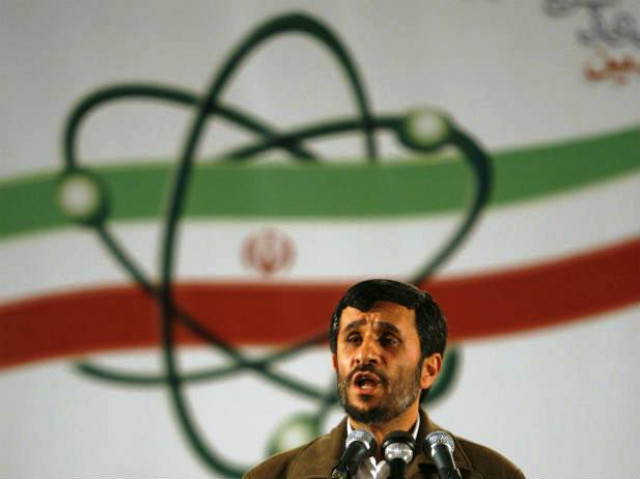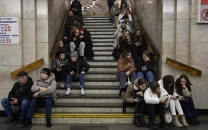Access to Iran site to top agenda at IAEA board
IAEA said new satellite imagery of Parchin base near Tehran indicates extensive activities.

Last month, the International Atomic Energy Agency (IAEA) said new satellite imagery of the Parchin base near Tehran indicated "extensive activities" where there had been "virtually" none for years.
This "could hamper the agency's ability to undertake effective verification" of the site, the IAEA warned.
The agency already sought access to Parchin -- where it believes suspicious explosives testing was carried out -- in two visits to Iran in January and February.
But this was denied, with Tehran arguing the site was not linked to its nuclear programme so it need not allow inspections.
Iran insists its nuclear programme is solely for civilian purposes but Western powers believe it is trying to develop a bomb.
After a visit to Iran on May 21, IAEA chief Yukiya Amano said he and chief nuclear negotiator Saeed Jalili would soon sign a deal to resolve issues over Tehran's nuclear programme. But two weeks on, there is still no sign of it.
Last week, IAEA chief inspector Herman Nackaerts also showed delegations new satellite pictures of Parchin taken on May 25 that analysts say suggest cleanup activities at the military base.
Iran's enrichment of uranium to 20-percent purity, bringing Tehran consistently closer to producing 90-percent enriched uranium needed to make a bomb, is another matter of concern, according to Western powers.
Iran and the P5+1 powers -- the United States, Russia, China, Britain, France and Germany -- met in Baghdad on May 23-24 in a bid to ease tensions over Tehran's suspected nuclear drive but little was achieved.
A further meeting was set in Moscow on June 18-19, before an EU oil embargo against Iran comes into force on July 1.
On Sunday, Iran's supreme leader, Ayatollah Ali Khamenei slammed suspicions that Iran was seeking nuclear weapons as "based on a lie" and insisted that sanctions on his country were ineffective and only strengthened its resolve.
The meeting of the IAEA's 35-member board of governors will be held behind closed doors, starting Monday, and is due to go on all week.



















COMMENTS
Comments are moderated and generally will be posted if they are on-topic and not abusive.
For more information, please see our Comments FAQ